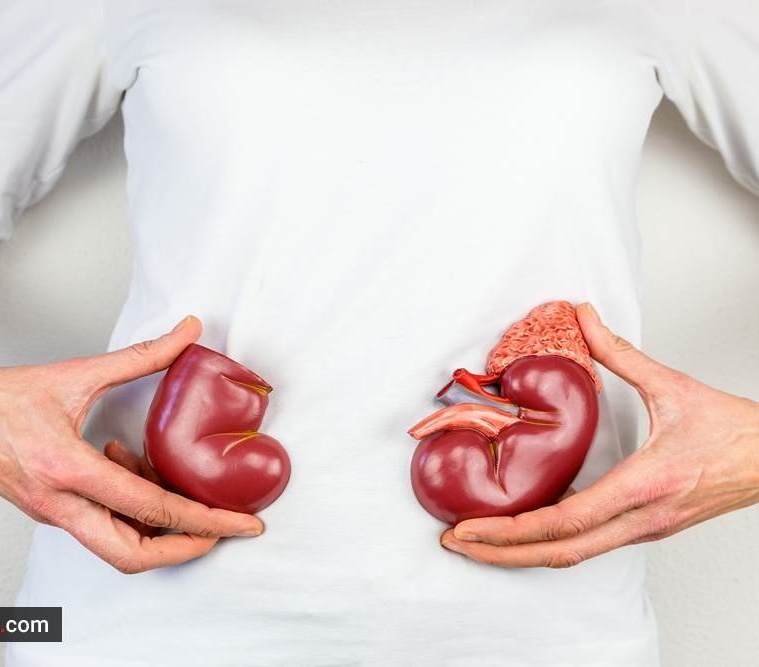World Kidney Cancer Day: All you need to know about the disease
Kidney cancer usually does not have symptoms in early stages. It may go often even go unnoticed since there usually is no pain

Written by Dr (Col) Ranga Rao Rangaraju
Every year, June 17 is observed as World Kidney Cancer Day to raise awareness about the disease. From a functional point of view, kidneys extract waste products and water from the blood. These are emptied into the bladder through the ureters as urine. Kidneys are also important endocrine organs for water and salt metabolism, maintaining pH level of the blood and also play a vital role in the metabolism of vitamin D.
Kidney cancer is the 13th most common cancer in the world. In adults, the most common type of kidney cancer is Renal Cell Carcinoma (RCC). RCC accounts for nearly 180,000 deaths worldwide each year. However, other less common types of kidney cancer can also occur. Young children are more likely to develop a kind of kidney cancer called Wilms’ tumour.

When does kidney cancer occur?
Kidney cancer can occur when healthy cells in either or both kidneys begin to malfunction and form a lump (tumour). Fortunately, most incidences of kidney cancers can be detected before they begin to spread (metastasize) to other organs.
Studies have found that incidences of kidney cancer are on the rise. This can be attributed to the growing popularity of imaging techniques such as computerised tomography (CT) scans. These tests may lead to accidental discovery of kidney cancers. Discovered at an early stage, the cancer is usually still small and confined to the kidney. It also easier to treat.
Symptoms to keep in mind
Kidney cancer usually does not have symptoms in early stages. It may go often even go unnoticed since there usually is no pain. Since kidneys are also located deeper within the body, it is also difficult to see or detect the tumours through physical examinations.
However, with time, signs and symptoms may begin to appear. Some of these include blood in your urine. It may appear pink, red or even black. It is important to note that the blood passage is painless; constant pain in the back or side that does not subside; unexplained weight loss; a loss of appetite, and persistent fever and tiredness.
One must consider seeing a doctor if they have any of these symptoms or signs that are causing concern.

What causes kidney cancer?
There is no conclusive answer. Doctors and medical experts know that kidney cancer begins when kidney cells develop mutations in their DNA. The changes make the cells grow and divide rapidly. The accumulation of these abnormal cells forms a tumour. These can be benign or malignant. Benign tumours are usually not life-threatening and can be cured. While malignant tumour can then extend beyond even the kidney. The cells can break away and even spread to other parts of the body and can be life threatening.
However there are certain factors that can add to the risk. These include:
*Smokers are at a greater risk of kidney cancer compared to non-smokers. The risk goes down after one quits smoking. People who are obese also have a higher risk of developing kidney cancer when compared to people who have a healthy weight.
*Medical history: Having high blood pressure (hypertension) also increases the risk of developing kidney cancer. Recipients of long-term dialysis for treating chronic kidney failure are also at greater risk. Certain inherited syndromes may also result in an increased risk of kidney cancer, such as those who have Birt-Hogg-Dube syndrome, von Hippel-Lindau disease, tuberous sclerosis complex.
The risk of kidney cancer is also higher if close family members too have had the disease. Lastly, the risk of developing kidney cancer also increases with age.
Treatment options
Surgery usually suffices to remove the cancer. For cancers that are limited to the kidney, this may be the only treatment required. But if the cancer has spread to other parts, then additional treatments may be needed.
There are multiple approaches for treatment. These depend on factors including one’s general health, the kind of kidney cancer they have, whether the cancer has spread and one’s preferences for treatment.
Surgery – For most kidney cancers, surgery is the initial treatment. The aim of surgery is to remove the tumour while preserving normal kidney function, if possible. Depending on the kind of cancer and what stage it is at, the doctor recommends whether a partial removal will work or if the entire affected kidney must be removed.
When cancer spreads beyond the kidney like to lungs, bones or elsewhere, the treatment would be targeted therapy or immunotherapy.
Targeted therapy – Targeted drug treatments focus on particular abnormalities which are present within the tumour. By blocking these abnormalities in specifically, the treatment can cause the cancer cells to die. A doctor would first have to determine by testing the cancer cells to see which targeted drugs would most likely to be effective.
Immunotherapy – Immunotherapy uses the body’s own immune system to fight cancer. The body’s immune system may not attack the cancer because the cancer cells produce proteins that help them hide from detection. Immunotherapy works by interfering with this process. Immunotherapy is also growing in acceptance since it can work on many different types of cancer. It trains the immune system to remember cancer cells. This immunomemory can result in longer-lasting remissions even much after treatment is completed.
Radiation therapy – This type of therapy uses high-powered energy beams from sources such as protons or X-rays to kill cancer cells. It is sometimes also used to reduce or control of pain in affected bones or brain.
Kidney cancer detected in early stages is curable and newer advances in treatment of advanced cancers has made the control of the cancer better and for longer period of time. If you wish to consult an expert for kdney cancer, you can approach an oncologist or an urologist.
The author is chairman – Paras Cancer centres, Paras Hospitals, Gurugram
For more lifestyle news, follow us: Twitter: lifestyle_ie | Facebook: IE Lifestyle | Instagram: ie_lifestyle
Source: Read Full Article
